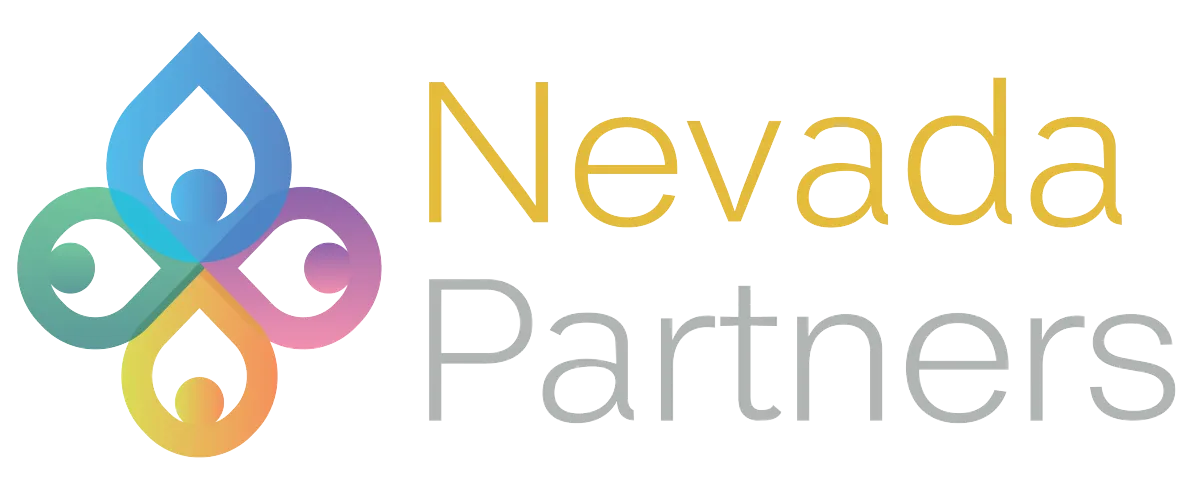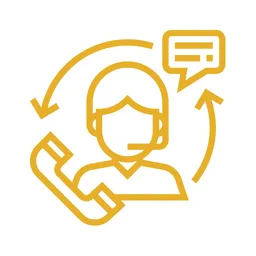





Promise Neighborhoods Initiative

West Las Vegas: Promise Neighborhood History
West Las Vegas is a Historic Neighborhood in Las Vegas, Nevada. This 3.5 square mile areaa is located northwest of the Las Vegas Strip and the "Spaghetti Bowl" interchange of I-15 and US 95. It is also known as the Historic Westside. Learn more about the history and map of the West Las Vegas Promise Neighborhood here.

Explore Community Pillars

Affordable Housing & Wealth Creation Pillar

Education & Youth Development Pillar

Future of Work
Pillar

Civic Participation &
Social Justice Pillar

Healthy Children, Families, & Neighborhoods Pillar
Pillar Related News

Cryptocurrency Workshop with Terris Foley: Protecting & Managing Your Digital Assets
In this insightful episode of Promise Startups, we welcome Terris Foley of The Foley Collective, who delivers an engaging workshop on cryptocurrency and digital asset management. With over 27 years in IT, Terris brings both expertise and lived experience to the discussion, from early investments in Bitcoin to becoming a seasoned mentor in the digital asset space. Through practical guidance, Terris walks us through understanding cryptocurrency fundamentals, protecting digital assets, and navigating this emerging market with confidence and security.
Introduction to Cryptocurrency and Mindset
Terris begins by sharing his journey, revealing how he initially invested in Bitcoin back in 2010 when it was worth only cents on the dollar. He shares a cautionary tale about selling his Bitcoin in 2014, a decision he says cost him generational wealth when Bitcoin later reached nearly $70,000. Reflecting on this, Terris explains how vital it is for entrepreneurs and individuals to approach digital assets with the right mindset.
“Many people aren’t engaging with cryptocurrency because they’re unsure if it’s real,” he says. “I’m here to tell you it’s very real—and, when approached correctly, it can be transformative.”
Building Digital Asset Literacy
Terris’s workshop dives into building foundational knowledge for those new to cryptocurrency, with a clear, structured breakdown:
What are Digital Assets?
Terris explains digital assets as a new, evolving asset class with Bitcoin as its anchor. He emphasizes that Bitcoin and cryptocurrencies aren’t just speculative investments but represent a revolutionary shift in how we perceive and interact with money.Learning the Key Components: Private Keys, Public Keys, and Wallets
Terris describes private keys as “the password to your Bitcoin,” underscoring the need for absolute secrecy. Public keys, on the other hand, function like a bank account number. He explains that wallets—both hot and cold—are essential tools for managing and securing assets. For beginners, Terris advises starting with hot wallets, though he strongly recommends transitioning to cold wallets, which store keys offline and offer significantly higher security.Wallet Types and Best Practices for Security
He shares insights on various wallet options, including biometric wallets, hardware wallets like Ledger, and innovative new options like Tangent Wallet, a portable, card-shaped wallet. These solutions, he explains, can greatly enhance security, particularly for those interested in long-term cryptocurrency storage.
“As they say, ‘Not your keys, not your crypto,’” Terris remarks, stressing the importance of self-custody and securing digital assets independently from exchanges.
The Role of Multi-Signature (Multi-Sig) Wallets
For those seeking an added layer of protection, Terris introduces multi-sig wallets, which require multiple private keys for transactions. He compares them to a vault needing two or more keys to open, providing peace of mind against potential losses from theft or loss of a single key.
Learning from Experience: Terris’s Personal Journey
Throughout the episode, Terris shares lessons learned from his own experience, including the importance of continuing education. He discusses his evolution from a newcomer in Bitcoin to becoming a “Bitcoin maximalist,” emphasizing that this journey required years of research, experimentation, and developing a well-informed strategy.
Terris highlights influential books that shaped his understanding, like The Bitcoin Standard and The Creature from Jekyll Island. He also mentions thought leaders like Michael Saylor, whose insights helped him understand Bitcoin as “the soundest money ever created.” He urges listeners to explore these resources to deepen their understanding of the historical context and value proposition behind Bitcoin.
The Bigger Picture: ETF Funds and Institutional Involvement
Terris covers how traditional finance is engaging with digital assets, pointing to BlackRock’s Bitcoin ETF as a significant step. This exchange-traded fund makes Bitcoin accessible to investors through established brokerage platforms like Fidelity and Charles Schwab, creating a bridge between traditional and digital assets.
“The ETF approval is a game-changer,” he explains. “It means people can invest in Bitcoin without the complexities of managing a wallet. And it’s federally approved, which brings a level of legitimacy and security.”
Terris’s explanation of ETFs offers a beginner-friendly way to access Bitcoin, with the reassurance of regulation and the simplicity of traditional stock purchasing.
Essential Security Tips for Cryptocurrency Holders
In an educational segment, Terris breaks down his recommended security practices, which cover both beginner and advanced tactics to safeguard assets:
Use Cold Storage Solutions and Hardware Wallets
Terris advises all cryptocurrency holders to transition from hot wallets to cold storage. “Cold wallets aren’t connected to the internet, which significantly reduces the risk of hacking,” he notes, listing hardware wallets like Ledger, Trezor, and Tangent as solid options.Back Up Your Wallet with Seed Phrases
Emphasizing that seed phrases are the last line of defense, Terris encourages listeners to back up wallets securely and to store these phrases offline in multiple safe locations.Enable Two-Factor Authentication (2FA)
He advises enabling 2FA on exchanges, explaining that apps like Google Authenticator and hardware keys like YubiKey can add an essential layer of security for active trading accounts.Create Strong Passwords and Use a Password Manager
Avoid common, weak passwords, Terris urges, suggesting password managers as a useful tool for securely storing unique passwords for each account.Stay Informed on Common Scams
Terris shares that phishing scams and fake airdrops are common pitfalls in the crypto space. Staying updated on scam alerts and following reputable crypto news sources are crucial steps in avoiding fraud.
“Security is the foundation of a successful crypto journey,” Terris emphasizes, reinforcing that these best practices should be non-negotiable for anyone serious about managing digital assets.
Fostering Independence with Self-Custody
One of the major themes of Terris’s workshop is financial independence. He explains how self-custody—owning and securing assets independently of third-party institutions—empowers individuals in the digital economy. “The goal is for you to become your own bank,” he says, describing self-custody as a revolutionary shift from traditional banking.
While self-custody may seem daunting, Terris reassures listeners that with a little patience and diligence, managing digital assets can become second nature. He encourages attendees to start small, emphasizing that even a modest initial investment can grow significantly with the right approach.
Q&A Session: Real-World Concerns Addressed
Terris wraps up the workshop with an open Q&A session, addressing common concerns around cryptocurrency security, privacy, and regulation. From discussing the stability of different exchanges to explaining how to avoid security risks, Terris tackles each question with practical, reassuring advice.
One question touches on the safety of platforms like Coinbase. Terris affirms Coinbase’s reliability but cautions users to transfer assets to a personal wallet for added protection. He also explains the advantages of regulated platforms, reiterating that reputable exchanges provide a more secure entry point for newcomers.
Another listener asks about self-custody risks, especially the potential loss of a hardware wallet. Terris explains that wallets like Ledger allow for seed recovery, ensuring users can restore access to their assets if they lose the physical device. He advises keeping seed phrases in secure, multiple locations to prevent loss from unexpected events like fire or theft.
Conclusion
As the workshop concludes, Terris emphasizes that cryptocurrency is more than a passing trend—it’s an evolution in how we interact with money. He leaves listeners with a call to action: take control of your financial future by learning, investing wisely, and securing assets with confidence.
Terris’s approach reflects the educational and empowering values that Promise Startups, Nevada Partners, and UNLV’s Tourism Business Igniter Program strive to support. For those interested in starting their own crypto journey, Terris’s guidance offers both the reassurance and practical knowledge needed to navigate this complex world.
“For the business owners and entrepreneurs here, digital assets are an avenue to grow your portfolio in innovative ways,” Terris concludes. “I hope I’ve provided you with something to consider as you explore this exciting space.”
Get Involved
Are You Interested In Joining Us or Accessing Community Services? Contact Our Office To Learn More

Explore Nevada Partners
About Nevada Partners
Community Learning Center
690 W Lake Mead Blvd. North Las Vegas, 89030
(702) 844 - 8000


